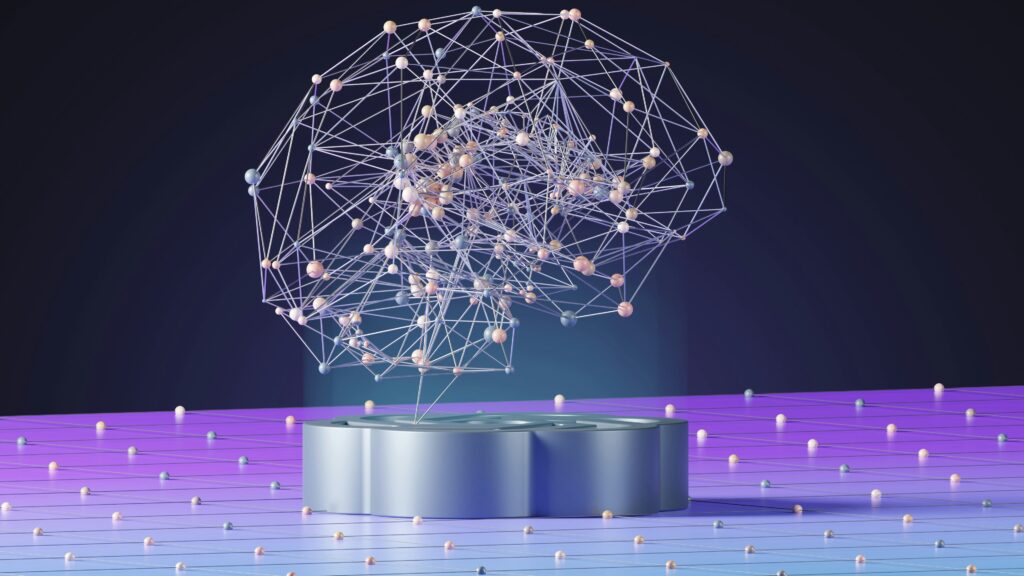When most of us think about neighbours, we imagine familiar faces across the street: people who wave from their front porch, lend us a cup of sugar when we’ve run out, or occasionally knock on the door to borrow our lawn mower. Neighbours are part of the fabric of community life, the human network that makes us feel supported and connected.
But in the 21st century, a new neighbour has quietly moved into our communities. You won’t see them walking their dog, and you won’t bump into them at the local shop. Instead, they live in your smartphone, your laptop, your smart speakers, and even in the systems that help run your town. Their name? Artificial Intelligence (AI).
And here’s the good news: while this neighbour may never invite you over for tea, they also won’t borrow your lawn mower. In fact, they might just help you use it better.
What Exactly Is This “Neighbour”?
Artificial Intelligence sounds intimidating at first. The term conjures up images of robots from science fiction films or futuristic gadgets far removed from everyday life. But in reality, AI is less of a stranger and more of a quiet helper already integrated into your routine.
If you’ve ever:
- Asked Siri, Alexa, or Google Assistant to set a reminder or play a song.
- Used Google Maps or Waze to avoid traffic on your way to work.
- Shopped online and noticed personalised product recommendations.
- Received a fraud alert from your bank before you even spotted a suspicious transaction.
…then you’ve already had a neighbourly chat with AI.
The truth is, AI has become an invisible companion that listens, learns, and supports — often without us even noticing. It doesn’t live across the street, but it’s always just one tap, click, or voice command away.
Why AI Matters for Everyday People
Imagine if you had a neighbour who was endlessly reliable, available 24/7, and never asked for anything in return. That’s what AI can feel like when used responsibly.
Here’s how it shows up in everyday life:
- Organisation and Productivity
AI acts as your personal assistant, reminding you of appointments, helping you draft emails, or even planning your weekly grocery list. It’s the neighbour who never forgets a detail and keeps you on track. - Saving Money and Time
From budgeting apps that suggest how to cut expenses, to smart thermostats that reduce electricity bills, AI can make life more efficient. It’s like the thrifty neighbour who always knows the best deals. - Keeping You Safe
AI helps power everything from medical diagnostics to online security. Whether it’s alerting your bank about fraud or monitoring your home with smart cameras, this neighbour is quietly watching out for you. - Entertainment and Connection
Whether it’s recommending films on Netflix, curating your Spotify playlists, or translating languages in real time, AI enhances how we relax and communicate.
In short, AI isn’t just technology — it’s becoming a part of the social infrastructure of modern communities.
For Local Businesses and Communities
While individuals feel the impact of AI daily, its influence is perhaps even more striking in local economies and small businesses. Traditionally, small business owners relied heavily on personal networks, intuition, and sheer effort. Now, AI is levelling the playing field by giving them tools once reserved for large corporations.
- Customer Service: Chatbots provide instant responses to customers at all hours, allowing businesses to stay accessible without burning out.
- Data-Driven Insights: AI tools analyse sales trends and customer behaviour, helping shop owners decide which products to stock or when to offer discounts.
- Marketing: Instead of guessing, AI enables more precise advertising by targeting people most likely to be interested in a product or service.
Think of it like a neighbour who knows exactly what the community needs and helps you prepare ahead of time. This isn’t about replacing human effort but about amplifying it, making local businesses more resilient and competitive.
Why Some People Are Wary of AI
Like with any new neighbour, not everyone is eager to roll out the welcome mat right away. And that’s fair. Concerns about AI are real and deserve attention.
- Job Security: Some worry AI will replace human roles. While it’s true that automation can shift certain kinds of work, it also creates opportunities for new types of jobs and skills.
- Privacy: Since AI relies on data, people are understandably concerned about who collects it, how it’s used, and whether it’s secure.
- Overreliance: There’s also the question of whether we might lean too much on AI, losing essential human skills or judgement.
These concerns echo how people once reacted to other innovations. When the microwave oven first appeared, many distrusted it, fearing it was unsafe. Today, it’s as ordinary as a kettle. AI may well follow the same trajectory: from suspicion, to gradual acceptance, to integration into everyday life.
Building a Future With AI in the Neighbourhood
The reality is this: AI is already in our neighbourhood. The real question is not whether we accept it, but how we engage with it responsibly.
Communities can take proactive steps to shape this relationship:
- Education: Understanding how AI works helps reduce fear and builds confidence.
- Ethical Use: Governments, businesses, and individuals must commit to using AI transparently and fairly.
- Balance: AI should be a support system, not a substitute for human creativity, empathy, or connection.
When we approach AI thoughtfully, it becomes less of a mysterious outsider and more of a trusted partner in community life.
Closing Thought
AI is a neighbour who never knocks on your door to borrow sugar or your lawn mower. Instead, it helps you plan your shopping list, cuts your grass more efficiently, and frees up time for you to enjoy an actual conversation with the people next door.
Like any good neighbour, it doesn’t replace your community — it strengthens it. And as long as we stay mindful of how we use it, AI may just turn out to be the neighbour we never knew we needed.





